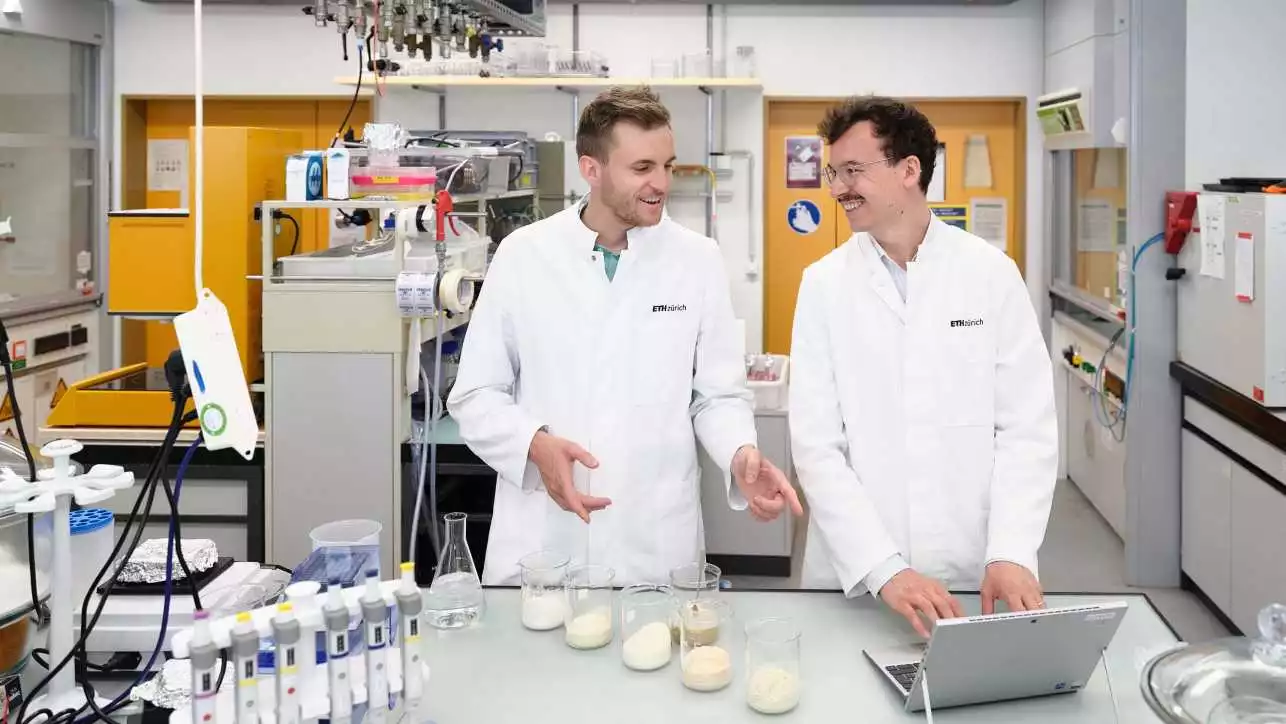Protein-rich microalgae is already being used as a fish-free alternative to the fish feed commonly used in aquaculture operations. Taking things a step further, scientists are now looking at utilizing the plant-like organisms to replace the prawns eaten by humans.
Although prawns can be farmed, most are still caught in the wild by fishing trawlers pulling large nets through the water. Therefore, as is the case with other types of commercial fishing, the potential exists for both overfishing and the accidental bycatch of non-target species.
Seeking a more eco-friendly alternative, the ETH Zurich research institute's Dr. Lukas Böcker and Dr. Severin Eder are now looking to microalgae. Not only can the microscopic organisms be sustainably cultivated in ponds or bioreactors, but they're also a good source of various proteins, unsaturated fats, vitamins and minerals.

In order to replicate the taste and nutritional value of real prawns, the scientists are combining a certain type of microalgae with other plant-based protein sources such as soya and pea meal. The mixture is extruded through a specialized nozzle, to replicate the shape of actual prawns. That said, the current version of the mock prawns are described as looking and tasting "a little like jellified, salty gummy bears."
Not to be dissuaded, the researchers believe that by experimenting with other processing techniques, they will be soon able to better replicate the flavor and texture of the genuine article. In fact, it is hoped that a saleable product will be ready by the end of the year. Other products, such as microalgae-based imitation crab and scallop meat, could then follow.
"With the technology and the platform we’ve developed, we’ll achieve not only an authentic taste and texture with a microalgae-based product but also the nutritional qualities you get with fish and seafood," said Eder.
Source: ETH Zurich




